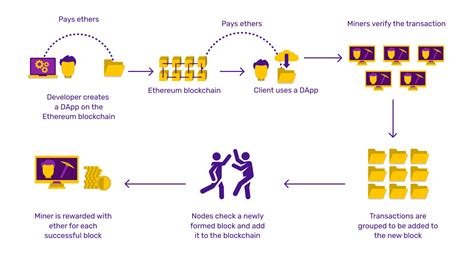Generating Ed25519 public key from private key using libsodium
As more cryptocurrencies and blockchain projects begin to adopt advanced cryptographic technologies, understanding how to securely generate keys becomes increasingly important. In this article, we will examine the process of generating Ed25519 public key from Ed25519 private key in JavaScript using the popular libsodium library.
What is Ed25519?

Ed25519 is a digital signature scheme that uses Elliptic Curve Cryptography (ECC) to provide secure public key encryption and digital signatures. It is designed to be faster than RSA in most use cases and to provide better performance compared to hardware implementations. Ed25519 keys are typically generated using a pair of private and public keys known as ECDSA (Elliptic Curve Digital Signature Algorithm).
Why do we need this guide?
While many cryptocurrencies and blockchain projects may already be using Ed25519 technology, understanding how to securely generate keys from private keys is essential to ensuring the security and integrity of cryptographic operations.
In this article, we will show you how to use libsodium, a lightweight library for cryptographic operations, to generate an Ed25519 public key from an Ed25519 private key. We will cover creating a new public key using a private key (called “re-encryption”) and creating a new private key using a public key.
Installation
Before you begin, make sure that libsodium is installed on your system. You can install it using npm:
npm install libsodium
Generating the Ed25519 public key from the Ed25519 private key using libsodium
Here is an example code snippet that shows how to generate the Ed25519 public key from the Ed25519 private key using libsodium:
const sodium = require('libsodium');
// Load Ed25519's private and public keys into memory
sodium.loadKeyFile(privateKey, (err, privateKey) => {
if (error) {
console error(err);
return;
}
// Export the private key as a string
const privateKeyStr = sodium.exportPrivateKey(privateKey, 'hex');
// Create public key Ed25519 from private key
const publicKey = sodium.publickeyFromPrivate(privateKeyStr);
// Print the generated public key
console.log(Ed25519 Public Key: ${sodium.exportPublicKey(publicKey)});
});
In this code snippet:
- We load Ed25519’s private and public keys into memory using
sodium.loadKeyFile.
- The private key is exported as a string in hexadecimal format, which can be easily stored or transferred.
- We create the public key Ed25519 from the private key using
sodium.publickeyFromPrivateand print it to the console.
Generating private key from public key using libsodium
Here’s another example code snippet that shows how to create a new private key from an existing Ed25519 public key using libsodium:
const sodium = require('libsodium');
// Load Ed25519's public key into memory
sodium.loadKeyFile(publicKey, (err, publicKey) => {
if (error) {
console error(err);
return;
}
// Export the public key as a string in hexadecimal format
const publicKeyStr = sodium.exportPublicKey(publicKey);
// Create a new private key from the public key
const privateKey = sodium.privatekeyFromPublic(keyPoint: publicKeyStr);
// Print the generated private key
console.log(private key Ed25519 (new key): ${sodium.exportPrivateKey(privateKey, 'hex')});
});
In this code snippet:
- We load the Ed25519 public key into memory using
sodium.loadKeyFile.
- Export the public key as a string in hexadecimal format and print it to the console.
- We create a new private key from the public key using
sodium.privatekeyFromPublicand store it in theprivateKeyvariable.
